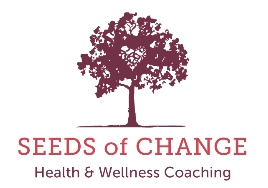“Do not look for healing at the feet of those who broke you.” – Rupi Kaur
A client confided in me once that although she was admittedly unhappy for the majority of her 10 year marriage, she did not expect that she would find herself feeling so lost, confused, and struggling to understand why this was happening to her in the midst of a divorce.
Whether it is a divorce, ending a significant relationship, losing a job or any other loss, all significant life changes come with a disorientation process; it’s the necessary byproduct of experiencing mixed emotions, change, and the process of discovering a new roadmap for the path forward, all at once. Divorce and death are especially challenging: in fact, they are listed in the #1 & #2 spot respectively on the list of “most stressful life events.”
What can be done to cope, transform and move forward confidently from an experience of significant loss?
There are two approaches I recommend: the first, is shifting your perspective about the situation, then the next, is seeking external support. This can be therapy at first, as healing is the first step to coping with loss; and then, when the person is ready to move forward, it could be time to engage in life coaching.
- Creating an Internal Support Structure: Talking with Yourself to Shift Perspective:
The FIRST STEP to creating a shift in perspective, is addressing how you talk to yourself. Consider that nothing happens “to you.” This mindset tends to lead to victim thinking, and will only end up making you feel worse.
If you find yourself asking questions like, “Why is this happening to me,” consider instead believing that things are happening “for you.” Practice asking yourself the question,
“What will this situation provide for me?”
Having an attitude that all things in the universe happen FOR you is empowering and life-giving. All the things that feel good are there for your happiness. All the things that feel bad are there to help you learn and grow. With this habit of thinking, you have the capacity to always win, and thus avoid becoming a victim of your circumstances. You are the creator of your life, always learning.
It’s also wise to start asking yourself different questions. Instead of asking “WHY”, ask “WHAT” questions. Trying to answer “Why is this happening?” or “Why did this happen?” can send you down a rabbit hole of depression and analysis paralysis that can keep you stuck in the past. Instead, ask yourself future oriented questions, such as,
“What future would I like to create for myself, now that I have so much extra time & space in my life?”
or,
“What can I do to bring more balance into my life right now?”
“What can I do to help myself move forward?”
And, most importantly,
“What do I want?”
Engaging the creative (right) side of your brain rather than the logical (left) side of your brain will provide answers that can get you unstuck.
- Seeking an External Support Structure – Talking with Others to Shift Perspective
Getting stuck in your head will keep you stuck in your life. When you are only listening to your own disempowering inner dialogue and believing the stories your mind is making up about you, it will drain your confidence. If you are having a hard time shifting your perspective on your own, then it may be time to consider seeking external supports.
Finding a Therapist
In the early stages of a major loss, the main emotional issue is grief. There are several stages to grief, including denial, anger and depression. When you are still actively experiencing very powerful emotions and need to process them & heal, I strongly suggest seeking the support of a good therapist. This support can help you navigate the rugged emotional landscape you find yourself on, and be a guide to continuously leading you to streams of healing waters. A good therapist will allow your story to be heard, validated and processed.
Connecting with a Professional Life Coach
Once you are past the initial emotional roller coaster and moving into the acceptance stage, this is when a good life coach can be very helpful. A life coach can help build your confidence, identify your strengths, and create a powerful mind-set in order to create a new life for yourself moving forward. When considering the new future that you may want for yourself, a life coach can help you to make confident decisions regarding your goals and visions, and empower you to take action to embrace the life that you want to create for yourself. Some losses in life are very significant and can leave people feeling emotionally bruised and broken. Once you are past the initial healing stages, a life coach can help you re-discover your strength, build your confidence & embrace your value to create new possibilities for your life.
Creating lasting change takes time, commitment, patience, sound support, and showing up for yourself, for weeks, months, or sometimes years at a time. But you are worth it. Learning to identify your strengths and help you shift your thinking to a more powerful mindset is something a life coach can support you through.



